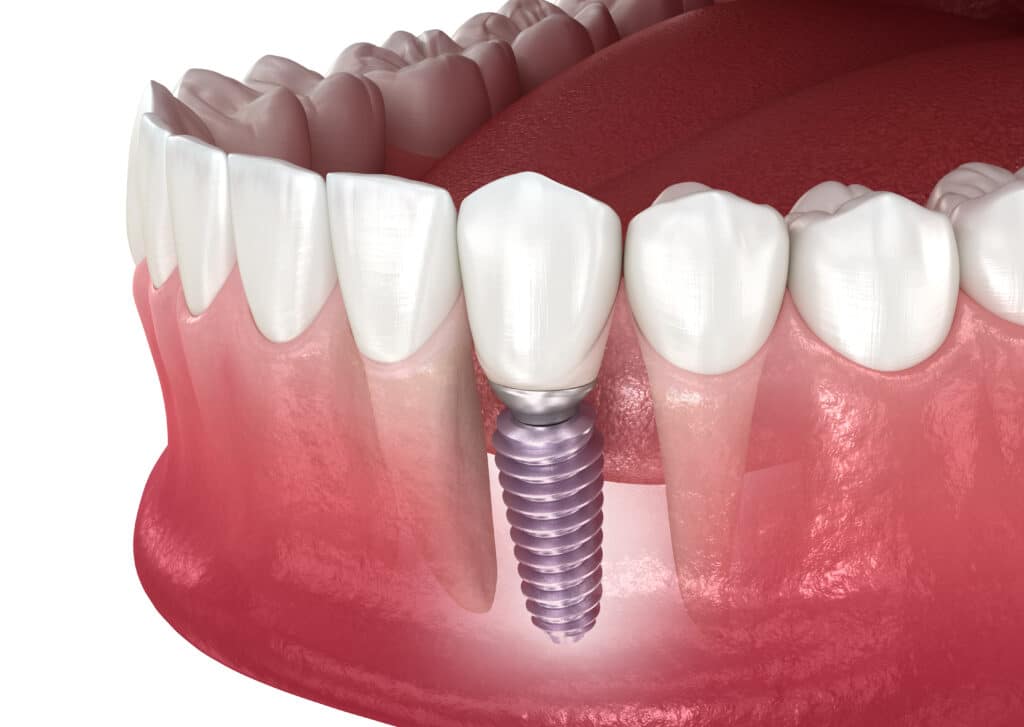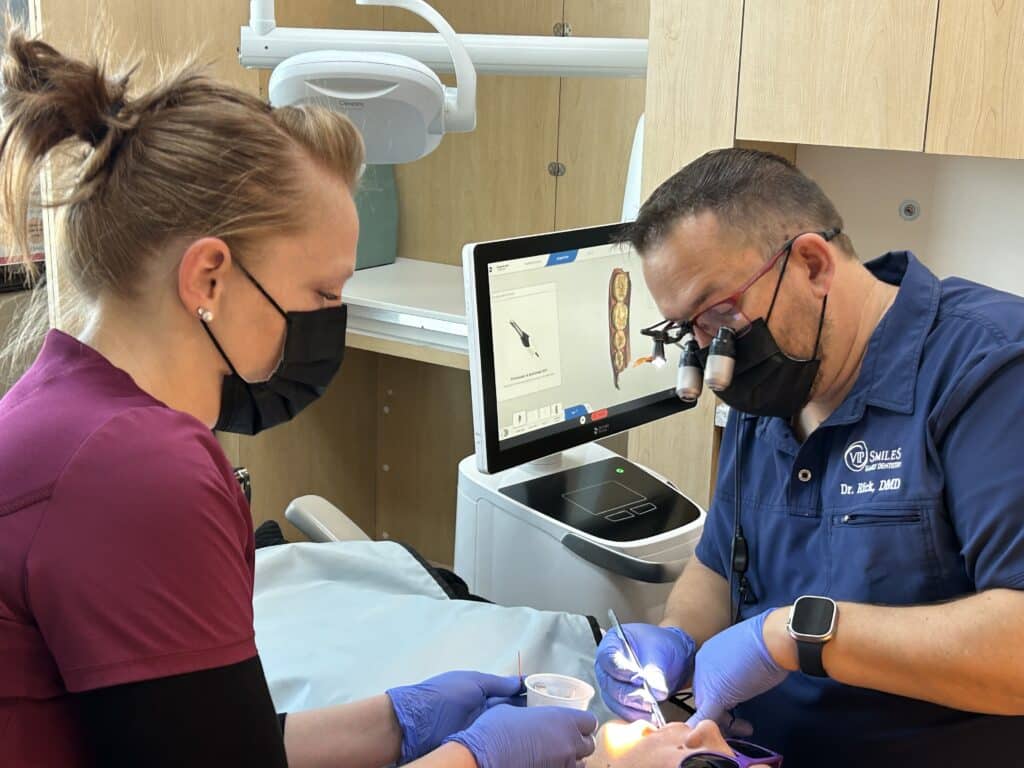
Missing teeth don’t just make it hard to eat and speak — they also impact your confidence, affecting your ability to present the best version of yourself to the world. Fortunately, there are many options out there for tooth replacement, including dentures and implants. But how do you know which is best for you?
Selecting between these two options is a significant choice that should not be taken likely. Both options have their benefits and drawbacks, and it’s essential to understand them so you can make an informed decision.
In this blog post, we’ll compare dentures and implants, present important factors to consider, and give tips to help you make the right choice for your smile restoration.
Overview of Dentures
Dentures are a traditional solution for missing teeth. They consist of a gum-colored base (usually made of an acrylic material) attached to faux teeth and rely on the palate or jawbone for support.
There are many types of dentures out there. Full dentures replace an entire arch, while partial dentures replace a group of teeth. There are even implant-retained and implant-supported dentures, which combine the two solutions.
Benefits
One of the biggest advantages of dentures is the lower upfront cost compared to dental implants. The installation process does not require surgery, making them a less invasive, more comfortable alternative to implants. They are also suitable for patients with weaker jawbones who may not be candidates for implants.
Drawbacks
However, because they’re not anchored to the jawbone, dentures typically require adhesives and frequent adjustments. They can slip and slide around the mouth, causing discomfort while eating and speaking. Plus, they may wear out over time, requiring replacement.

Overview of Dental Implants
Implants can replace a single tooth, multiple teeth, or an entire arch. They consist of a screw-like titanium post that’s surgically placed into the jawbone as a replacement for the tooth root. The post acts as an anchor for the crown, which is specially crafted to mimic the shape and color of your natural teeth.
Benefits
The most significant benefit of dental implants is that they feel, function, and look like natural teeth. They’re incredibly durable, and with proper care, can last a lifetime. They can also benefit your oral health by stimulating the jawbone and preventing bone loss.
Drawbacks
Dental implants come with a higher initial cost than dentures, though, making them less suitable for patients on a budget. They also require good bone density for support, so those who have been missing teeth for a long time may not have enough bone left. Plus, the installation involves a surgical procedure, which means a longer recovery period.
Key Factors to Consider
For many patients with missing teeth, the most important factor in their decision is the cost. Depending on your personal needs, implants may be significantly more expensive than dentures. However, dentures are more likely to need repairs or replacement at some point, potentially making implants the less costly option.
Your oral health is another key factor that determines your eligibility for either option. Your jawbone needs stimulation through chewing and speaking, and when teeth are missing, the bone can deteriorate. That means that if you lost your tooth a long time ago, the jawbone may not be dense enough to support an implant.
Your lifestyle can also affect your decision. Dentures require more maintenance — daily cleaning, adhesives, and professional adjustments by your dentist. Many people find them to be uncomfortable, as they can slip out of place relatively easily. This means that implants are typically better for those who value convenience and ease of maintenance.
The final factor to consider is the time involved in each process. From fittings to healing, implants can be a significant time commitment. If you’re not willing to invest that much time, implants may not be the best choice for you.

How to Make the Right Choice
Whichever option you’re leaning towards, it’s important to consult with your dentist for expert advice. At VIP Smiles, we’ll take into account your budget, whether you’re comfortable with surgery, and your desired long-term outcome. With the help of X-rays and other diagnostics, we can confidently determine your eligibility for implants.
Quality Implants at VIP Smiles
At VIP Smiles, we understand that missing teeth can have a significant impact on your quality of life. If you’re considering restorative dentistry, schedule an appointment at VIP Smiles to consult with one of our expert dentists and get solutions tailored to you.

